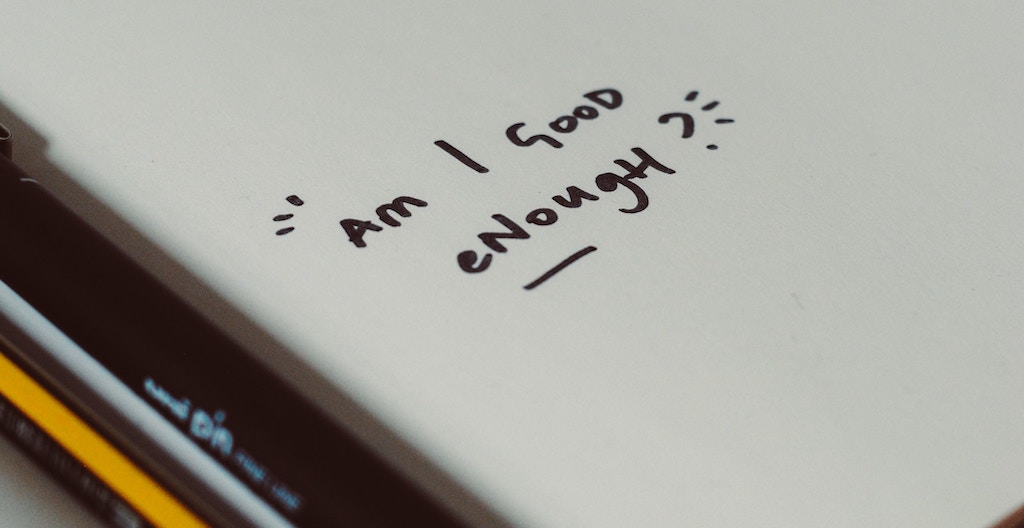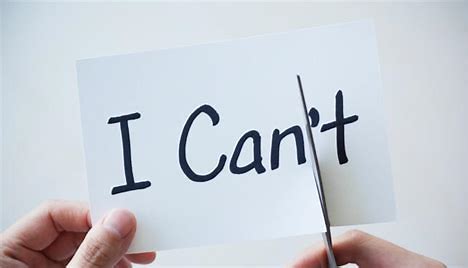Is your inner bully quick to point out when you’re failing
at what you’re doing? If you’re often secretly assaulted by self-doubt – that
voice inside telling you you’re not good enough – know that you’re not alone,
and that there are ways to turn down your internal critic.

No one gets through life without making mistakes. Or without
failing, getting rejected, feeling guilty or not living up to expectations.
It’s part of being human. Yet many of us will respond to these common
experiences by criticising ourselves harshly.
For some of us the inner critic appears every now and again,
while for others it’s a never-ending chatter of such ferocity that it
undermines how we feel about ourselves and our effectiveness in life and work.
This voice can be especially loud for anyone experiencing anxiety or
depression.
Psychologist Sabina Read believes that we all have an
internal critic. “But that doesn’t mean that the inner critic is always giving
us valid messages. Often, if you’re living with symptoms of anxiety or
depression that inner critic will seem louder.”

So what do you do to recognise and challenge the inner
critic?
1. Notice the negative self-talk.
It’s easy to allow your mind to ruin your day, so give yourself the conscious
goal of catching yourself saying negative things.

1. 2. Don’t believe everything your inner critic is
saying. Remember that your thoughts are not facts. “When the critic is on
high-repeat we just take it as gospel that whatever’s being said must be the
truth and we don’t stop to challenge it,” explains Ms Read. “Then there’s a
reinforcing loopback because physically or emotionally our body responds, and
we feel sick in the stomach and it makes us think that the fact is even more
watertight.”
2. 3. Take your thoughts to court. This means looking
at the evidence for what your inner voice is saying, suggests Ms Read. “If you
wandered into a courtroom and said, ‘Well, I’m just hopeless, there’s no way
I’ll be able to thrive in this relationship or cope in this job’, it’s unlikely
a judge and jury would accept such a sweeping statement. The legal team would
say, ‘Where’s the evidence for that?’ And if there was no evidence your case
would be thrown out of court.”
3.
4. Speak to yourself with kindness. According to
self-compassion researcher Kristin Neff, the antidote for self-criticism is
self-compassion. This means treating and talking to yourself kindly, as you
would your close friends, and accepting your imperfections along with your
strengths.
4.
Self-compassion has been shown to reduce
negative emotions and highly self-critical thinking across numerous studies.
5.
“Self-compassion involves valuing yourself in a
deep way, making choices that lead to wellbeing in the long term,” says Neff.
Neff and Christopher Germer’s 2019 research
shows that people who offer themselves self-compassion are more able to cope
with tough situations like illness, divorce, and loss of job, and are more
likely to engage in healthier lifestyle behaviours such as eating nutritious
food and exercising.
6.
5. Seek out your supports. When your inner critic
is at its loudest, check in with a supportive friend, colleague or family
member. Develop a shortlist of people you trust and can count on to offer
encouragement and compassion when you need it.
7.
6. Focus on the things you do well. If you’re
constantly looking for information that confirms you’re not good enough, you’ll
find it. Instead focus your attention elsewhere, on the skills you do have. It can be hard to see your own
skills because they’ve been with you for so long you think everyone has them.
But they don’t. Each night, write down in a journal three things you did well
that day – look at these whenever your critic is particularly loud.
8.
7. Be kind to yourself with self-care. Give
yourself some time everyday for your mental and physical wellbeing. For
example, schedule time to take a walk (even if it’s only for 10 minutes), read
a book, go for a swim, break for a coffee, do some yoga, or practise
meditation.